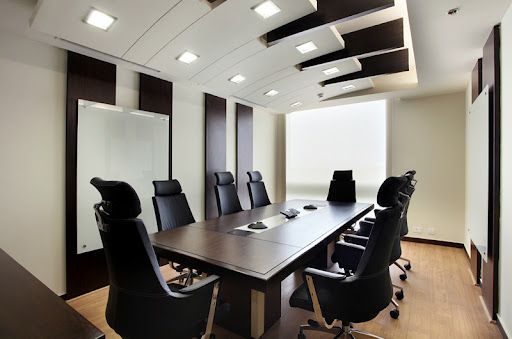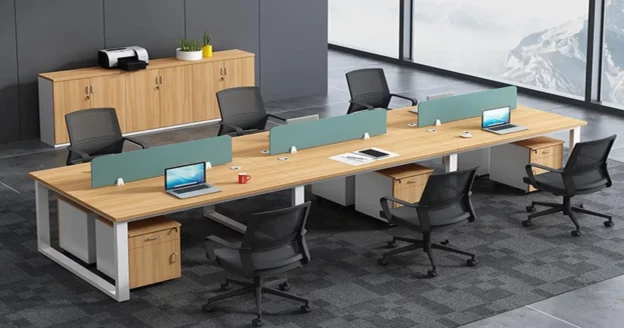In today’s fast-paced business world, office design plays a crucial role in shaping productivity, creativity, and employee satisfaction. One of the most effective ways to transform a traditional workspace into a dynamic and flexible environment is by incorporating modular workstations. These adaptable office furniture solutions are rapidly becoming a staple in modern offices, offering a host of benefits for businesses of all sizes.
1. Maximized Space Efficiency
Modular workstations are designed with space efficiency in mind. Unlike traditional cubicles or static desks, modular systems allow for easy customization, enabling companies to make the most out of their available space. These workstations can be arranged in various configurations, from compact solo desks to expansive team setups, ensuring optimal space utilization without compromising on functionality.
For businesses in bustling cities like Vadodara, where office space can often be limited, modular workstations offer a smart solution that adapts to evolving space requirements.
2. Scalability and Flexibility
As your business grows or undergoes restructuring, so too must your office layout. Modular workstations provide the flexibility to scale your office furniture as needed, without requiring significant investment in new pieces. This scalability allows businesses to easily expand their teams or adjust the layout according to new operational needs, all while keeping costs manageable.
Whether you’re launching a startup or managing a well-established enterprise, modular systems offer a level of adaptability that traditional office furniture cannot match.
3. Encouraging Collaboration and Communication
In a modern office, collaboration is key to success. Modular workstations foster this by creating open, interconnected spaces where employees can easily collaborate and communicate. By designing configurations that allow for team-oriented spaces, these workstations promote a collaborative work culture, which is essential for innovation and productivity.
Moreover, the flexibility of modular designs allows businesses to reconfigure workstations for different team sizes, encouraging collaboration between different departments or groups when required.
4. Enhanced Employee Comfort and Productivity
Modular workstations are not only designed for efficiency but also for comfort. These systems offer adjustable desks, ergonomic seating, and easy access to storage, all of which contribute to a healthier work environment. An employee who is comfortable and has everything they need within arm’s reach is more likely to stay focused and productive throughout the workday.
Investing in ergonomic, customizable workstations can significantly reduce workplace stress and physical strain, resulting in fewer sick days and higher morale.
5. Aesthetic Appeal and Branding
The design of an office contributes to the overall atmosphere and reflects a company’s culture and values. Modular workstations come in various styles, finishes, and configurations, making it easier to create an office that aligns with your company’s brand image. From sleek, modern designs to more traditional looks, modular furniture can be customized to reflect your company’s identity.
With their clean lines and contemporary aesthetics, modular workstations enhance the visual appeal of your office space, making it a pleasant place for employees to work and a great impression on visitors.
6. Cost-Effective and Long-Term Investment
While modular workstations may require a larger upfront investment compared to traditional furniture, they are a cost-effective solution in the long run. The durability and flexibility of these workstations mean that they can last for years, reducing the need for frequent replacements. Furthermore, their ability to adapt to changing needs means you won’t have to purchase new furniture every time your office layout changes.
For businesses looking to make a smart investment, modular workstations offer excellent value for money, especially when considering the long-term savings on renovations and reconfigurations.
7. Sustainability and Eco-Friendliness
In the era of environmental awareness, many modern offices are embracing sustainable practices. Modular workstations are often designed with eco-friendly materials and manufacturing processes, making them a greener choice compared to traditional office furniture. By opting for sustainable modular systems, businesses can reduce their carbon footprint while creating a stylish and functional workspace.
Moreover, the modular nature of these workstations means they can be easily disassembled and reused or recycled, further contributing to a more sustainable office environment.
Conclusion
Incorporating modular workstations into your office design is not just a trend, but a strategic choice that aligns with the needs of a modern, agile business. Their flexibility, scalability, and ability to foster collaboration make them the perfect fit for today’s fast-evolving work culture. Whether you’re looking to optimize your office space, enhance employee productivity, or create an aesthetically pleasing work environment, modular workstations offer a practical and stylish solution for every modern office.
For businesses in Vadodara and beyond, embracing modular furniture is an investment in the future—one that can transform your workspace into a dynamic hub of innovation and efficiency.


